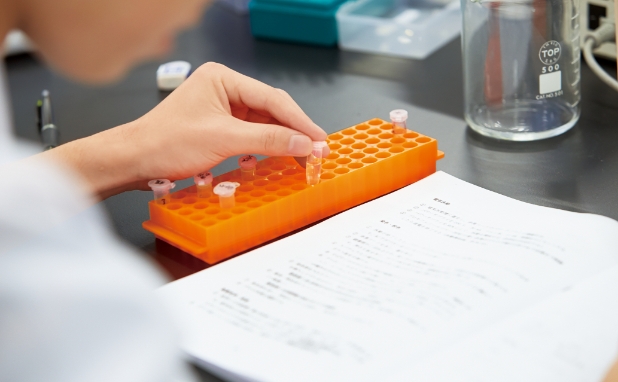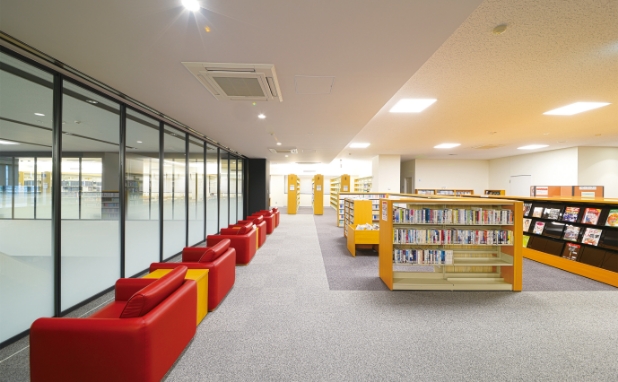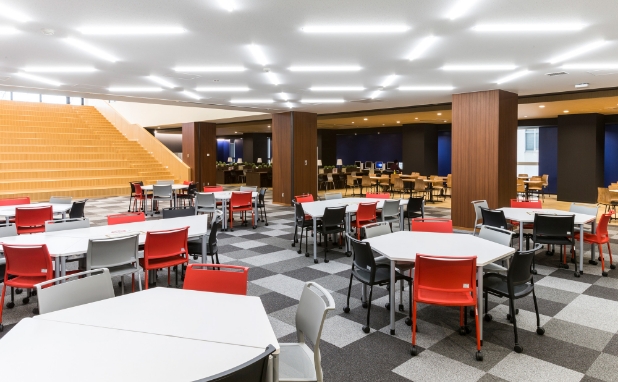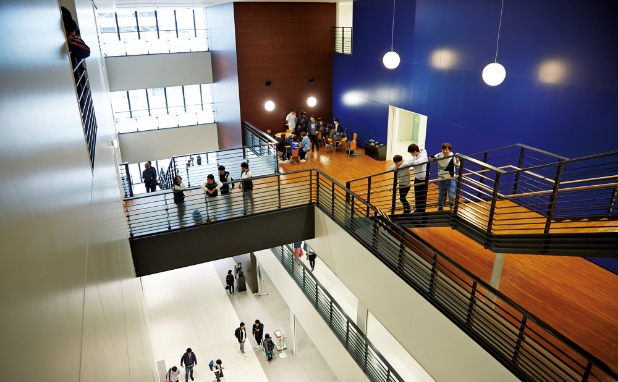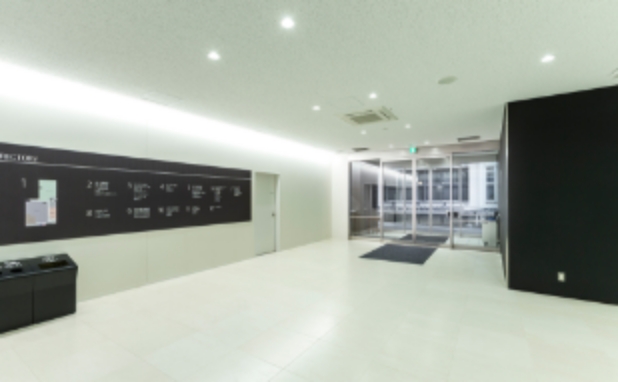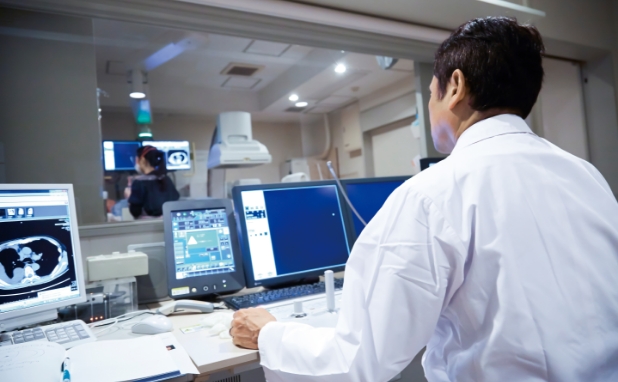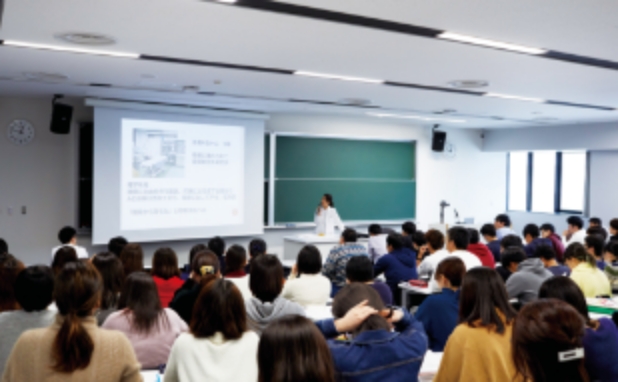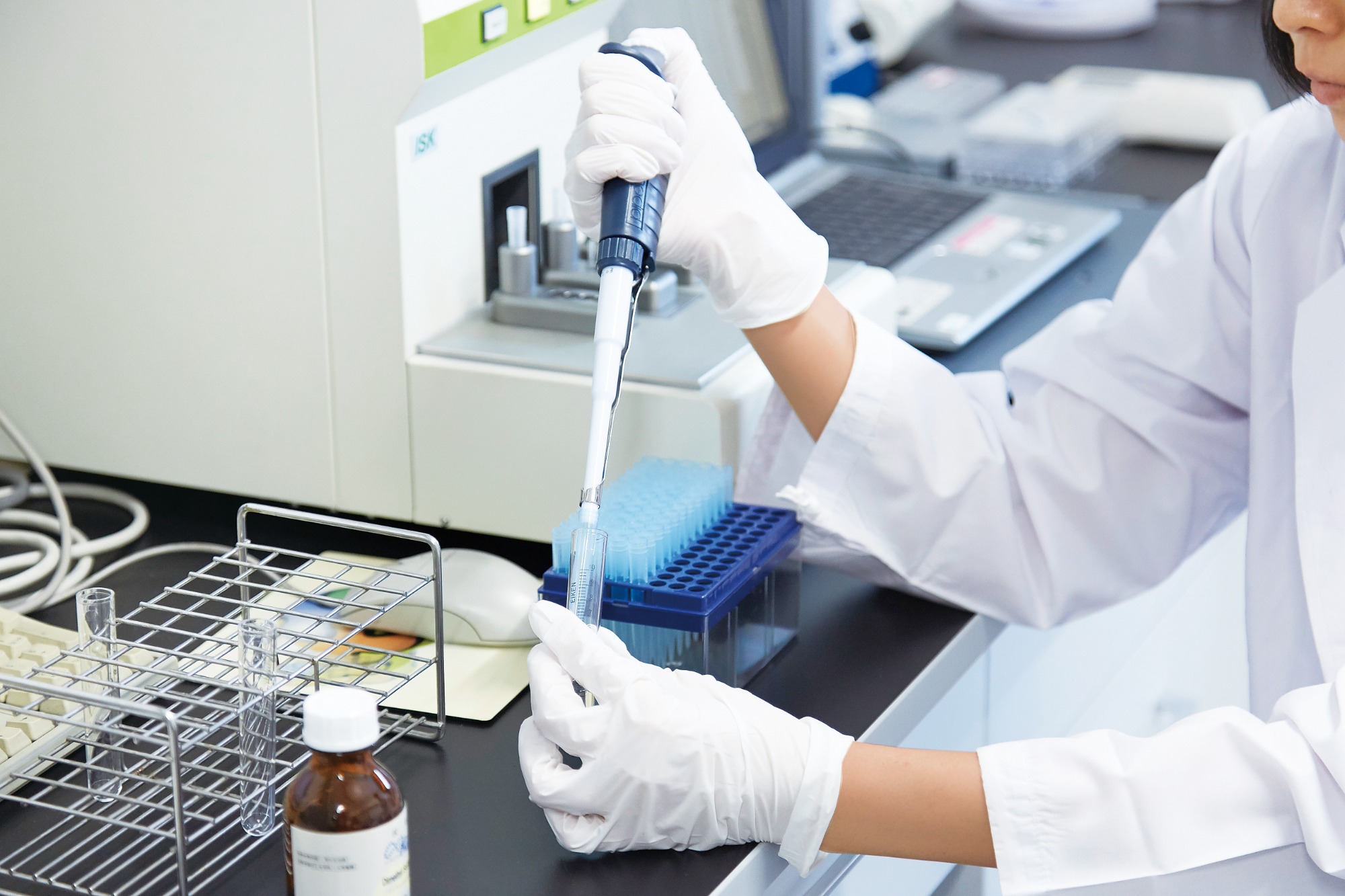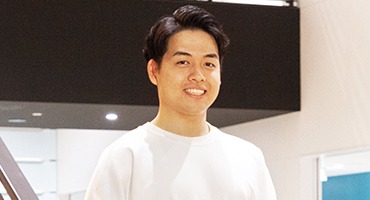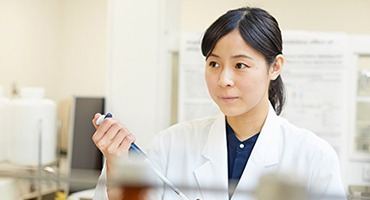Undergraduate and Graduate School
School of Medicine
Unique educational content to nurture medical practitioners who connect hearts and lives
Medical technology advances every day, and modern medicine has brought great benefits to people. In addition to fully acquiring such medical skills and knowledge, what is now required in medicine is a connection between medical professionals and people. In an increasingly sophisticated and complex medical environment, medical professionals must work together as equal partners and build trusting relationships by putting themselves in the shoes of sick people. There is a need to cultivate doctors with a rich humanity who can practice compassionate medicine.
In accordance with our founding principles, our university provides detailed, intensive education to cultivate excellent doctors who can contribute to society.
Characteristics of learning
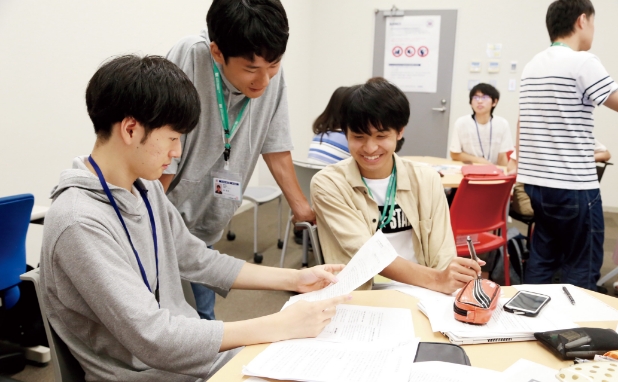
Comprehensive education to cultivate excellent doctors
Through IPE (Interprofessional Collaboration Education), students acquire interprofessional collaboration skills, and through team-based learning (TBL), students acquire problem-solving skills, thereby cultivating practical, excellent doctors. In addition, through thorough preparation for the national medical examination, we boast a high and stable pass rate for the national exam.
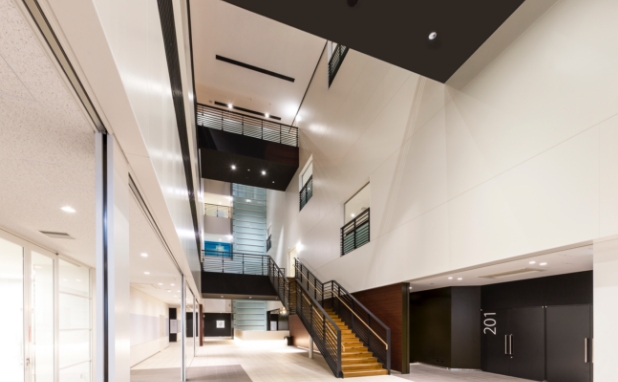
Cutting-edge educational environment and comfortable student living environment
The lecture rooms, training rooms and learning squares are equipped with the latest information and communication facilities. There is also a student cafeteria serving healthy and delicious meals, and a student lounge where students can relax.
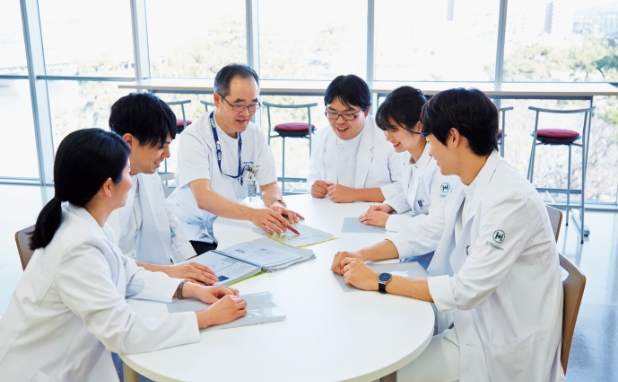
Reliable support system
We assign homeroom teachers for each year from the 1st to 4th years, and also assign advisors to each group of 7-8 students in the 1st year to support them in their studies and daily life. In addition, Medical Education Center provides various support for students with worries and problems related to their studies, such as study methods, practical training, and career counseling.
Six years of study
- 1年次
-
Acquire the basics and knowledge of medicine
We strive to foster basic natural science and language skills, as well as humanities and social studies. We also introduce problem-based learning (PBL) to "Introduction to Medicine" to cultivate self-learning and self-study skills. In "Welcome to the School of School of Medicine," students are motivated to become Hyogo Medical University students by hearing about their experiences directly from faculty members who are active at the forefront of medical care and research.
- 2年次
-
Acquire basic medical knowledge
In order to develop sufficient knowledge, skills, and attitudes as a doctor, students begin to study the structure and functions of the human body in earnest. In addition, students are offered courses aimed at horizontal integration of basic medicine, courses to cultivate the qualities of a researcher, and courses aimed at integrating and bridging the gap between basic and clinical medicine. In addition, a comprehensive promotion exam is held to sum up the first and second years.
- 3年次
-
Understanding IPW (Interprofessional Work)
The curriculum is horizontally integrated with internal medicine and surgery by organ, and vertically integrated with basic medicine, to ensure that students acquire knowledge. Students will learn the importance of interprofessional collaboration through active learning, where students think and discuss for themselves while working in groups, and through joint education from four faculties (medicine, pharmacy, nursing, and rehabilitation). A Research Physician Course will also be launched.
- 4年次
-
Hone your knowledge and skills before moving on to clinical training
The integrated curriculum will continue to organize the knowledge that students have accumulated so far. The curriculum is diverse, including social medicine subjects, clinical subjects that cross all departments related to the whole body, and preparatory subjects for starting clinical training. In preclinical education, students will learn basic medical techniques. After passing the comprehensive promotion exam and CBT/Pre-CC OSCE, clinical training will finally begin in November.
- 5年次
-
Acquire the skills to become a doctor
Continuing from the end of the fourth year, students will continue with clinical training. Not only will they observe, but they will also interact with patients as part of a medical team through clinical clerkships (participatory clinical training). Here, they will acquire the attitude, skills, and knowledge required to become a doctor. From February, they will move on to off-campus clinical training, where they will gain experience at frontline hospitals that is different from that of a university hospital.
- 6年次
-
Culminating learning for the medical profession
For eight weeks from April, students will have practical and flexible elective training, such as advanced training at hospitals on campus or off campus, overseas training, or laboratory placement. In addition, in the Post-CC OSCE, students will hone their clinical reasoning and improve their diagnostic skills as doctors, and take the National Medical Licensing Examination and graduation exam.
National Medical Examination
2023 National Medical Examination
Pass Rate
98.2%
(全国平均94.9%)
Employment/Further study
